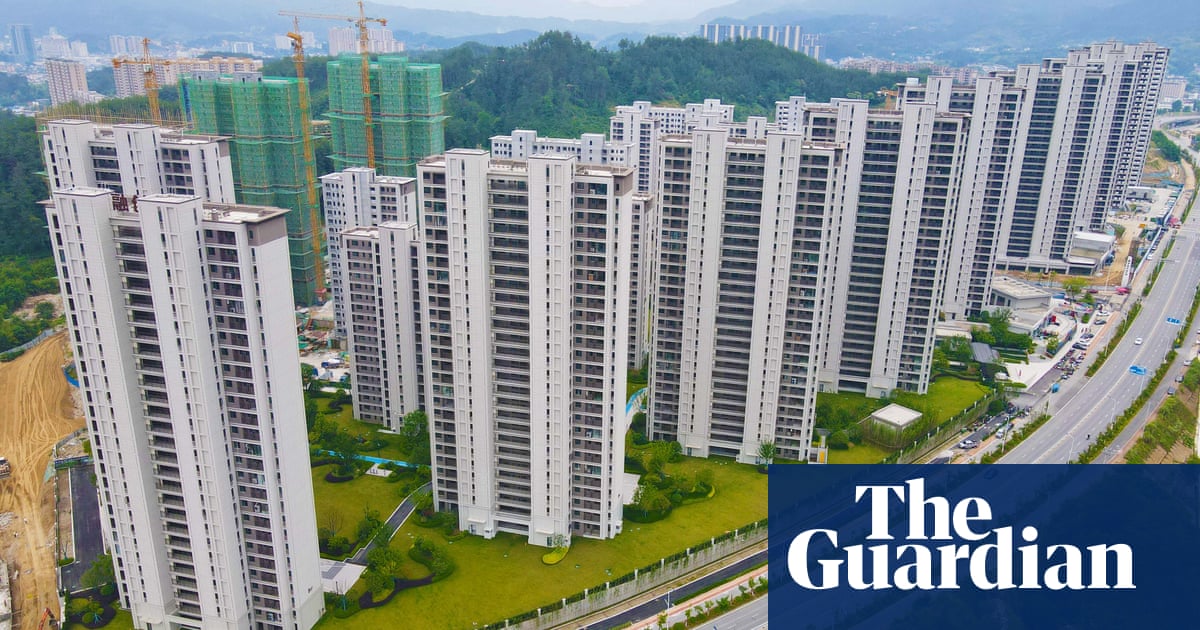The industry that has traditionally powered about a quarter of GDP has been in a downward spiral that policymakers have struggled to halt
All across China, from Beijing in the north, to Shenzhen in the south, millions of newly built homes stand empty and unwanted. There were nearly 391m sq metres of unsold residential property in China as of April, according to the National Bureau of Statistics. That is the equivalent of Manchester and Birmingham combined – and then some – sitting as vacant, unwanted property.
This glut of idle property has caused a headache for the government, shaken the world’s second largest economy and raised tensions over the purpose of housebuilding in a nation where property investment had been viewed as a safe bet.
Since the real estate sector was sent into a tailspin in 2020, caused by the pandemic and a sudden regulatory crackdown, the industry that has traditionally powered about one-quarter of GDP has been in a downward spiral that policymakers have struggled to halt.
The crux of the problem is that, with shaky faith in the economy and big property developers failing to deliver on paid-for apartments, potential homebuyers are keeping their money out of the market.



I think I prefaced the statement with it depended on what you consider a subsidy. I admit it isn’t semantic, but I really consider any government assistance to private equity a subsidy. Mainly because it in truth and investment in which the government is hoping for a return.
Right, but this is a reclamation action. It’s not what the original investment was meant for, and surely they aren’t getting the same monetary return they originally hoped for.
I support governments subsidizing affordable housing, this is another thing I think western states need to realize. However, it doesn’t seem like they needed to focus on that much housing at the moment, and it doesn’t seem like that was their original intention.
I think the government’s entire existence should evolve around fulfilling their public’s needs, including adequate public transportation. The key word there is need. The Chinese government didn’t need to throw billions of dollars to private equity to build more homes than necessary. They did it because they wanted to maintain their gdp, so they could flaunt their economic vanity alongside the US on the international stage.
Fair enough. I think then it’s important to distinguish between what subsidies are worth tariffing and what subsidies are not. If Germany rezones an area to allow car factories to be built, is that a subsidy worth tariffing?
I mean, in this case it’s more that the developers lost money and the government gained assets sold below book value… That’s pretty good return imo. The developers’ investors got fucked, yes, but have you looked at, say, Evergrande’s ownership? Not all Chinese developers are state-owned. In fact, the distressed ones are not.
Except… Do you know how China imputes rent for their GDP calculations? It’s the construction cost depreciated linearly over the life of the building. Think about that for a second, then come back to me. I can explain it to you, but when I realized what it meant it shook me to the core so maybe it’ll have the same effect on you lol. For reference, the US imputes rent by asking “what would the homeowner have paid if they had to rent.”